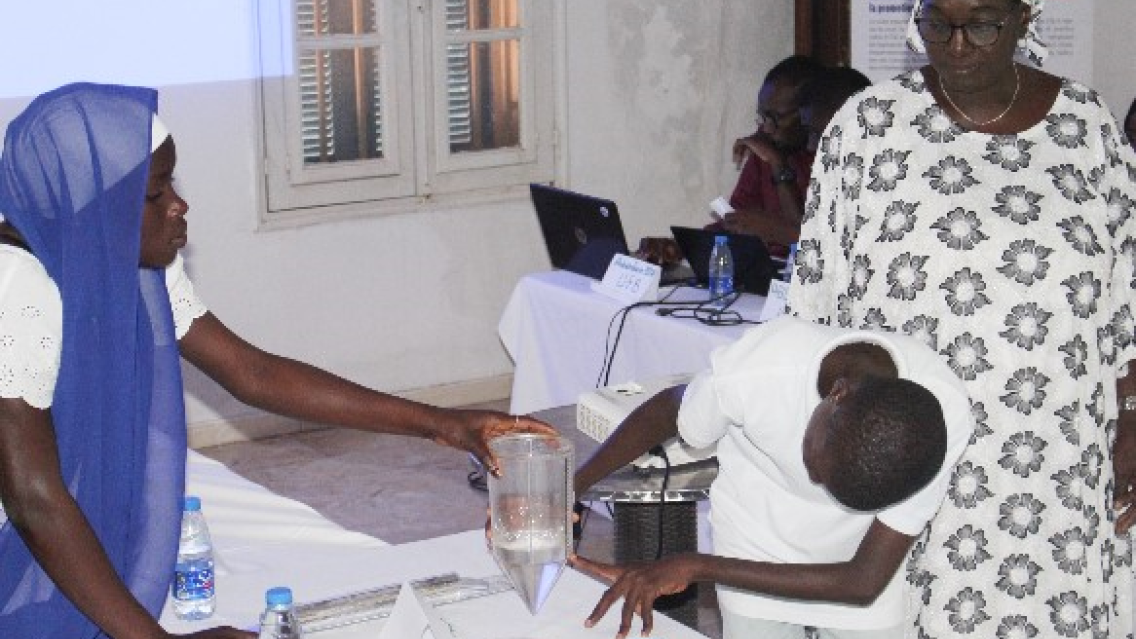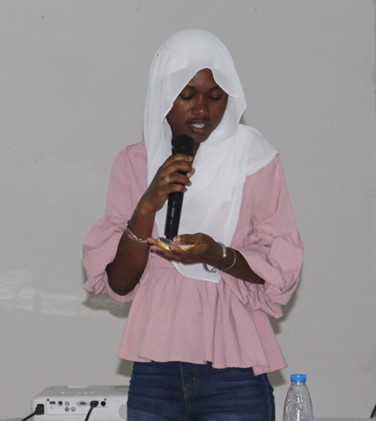SERVIR Clubs: Transforming STEM Education and Gender Equity in Senegal

Collaborative Efforts Bridging the Gender Gap in Science, Technology, Engineering, and Mathematics in Senegal, West Africa
SERVIR West Africa created youth clubs to provide an inclusive space where all students, especially girls, can explore and gain skills in Science, Technology, Engineering, and Mathematics (STEM). With a specific focus on girls, these clubs aim to bridge the gender gap in youth STEM programs through student exposure to world-class environmental monitoring tools such as geographic information systems, remote sensing, and other digital technologies.
Addressing the Gender Gap
Girls are underrepresented in science throughout Senegal. According to the Ministry of Education, only 26.5% of young women enroll in science programs compared to 31.9% of young men in the country.
Unfortunately, Senegal follows the global trend–only 32% of STEM students worldwide are women. This disparity is due to structural and societal issues, where women are both discouraged from participating in the sciences from a young age, or unable to participate in the sciences due to barriers like domestic tasks or childcare.
This STEM gap is especially large in rural areas, where many students do not have access to Earth science curriculum or tools, such as weather stations. Without having access to these resources, rural students have fewer opportunities to pursue careers in STEM.
To address these gaps, SERVIR West Africa partnered with the Directorate of General Secondary Education and GLOBE, a NASA program designed to engage young students in Earth science, to create the SERVIR clubs.
Since its inception, the SERVIR clubs have trained over 580 students, including 350 young women. Using geospatial tools, students learn about issues in agriculture and food security, weather and climate, and water resources and natural disasters.
Supporting Young Women as Future Leaders in STEM
The SERVIR clubs create a supportive space where young women and girls join not only as participants, but as leaders. Coumba Bâ is a student at Alboury Ndiaya High School, a rural school located over 300 km from the capital city of Dakar. With the support of the SERVIR club, Bâ and her classmates installed a weather station and school garden that they use to gain hands-on experience in Earth science.

Bâ became a recognized leader and advocate of STEM within her high school, and was later appointed as the vice-president of the national coordination committee for the SERVIR clubs. In this role, Bâ hopes to expand the reach of these clubs throughout Senegal and show the importance of women in decision-making roles.
"Participating in the SERVIR Club has helped me develop my skills and experience in science and as a leader in my community. I am pleased with my accomplishments but I am most proud of encouraging other young girls to engage in the world of science." - Coumba Bâ
Director General of ICRISAT, Dr. Jacqueline Hughes, commented that encouraging young women and girls like Bâ to participate in STEM is essential for gender equity as well as social and economic progress. “By improving the participation of women and girls in STEM fields, not only will individuals benefit, but entire communities and societies as well,” Hughes shared. “Utilizing the talents and potential of half of our population, we can drive innovation, creativity, and growth while addressing critical global challenges.”
This initiative is implemented under the leadership of ICRISAT (the International Crops Research Institute for the Semi-Arid Tropics), in partnership with the Senegal-based Centre de Sulvi Écologlque CSE (Center for Ecological Monitoring).
This initiative is made possible by the support of the American People through the United States Agency for International Development (USAID). The contents of this article are the sole responsibility of ICRISAT and do not necessarily reflect the view of USAID or the United States government.

